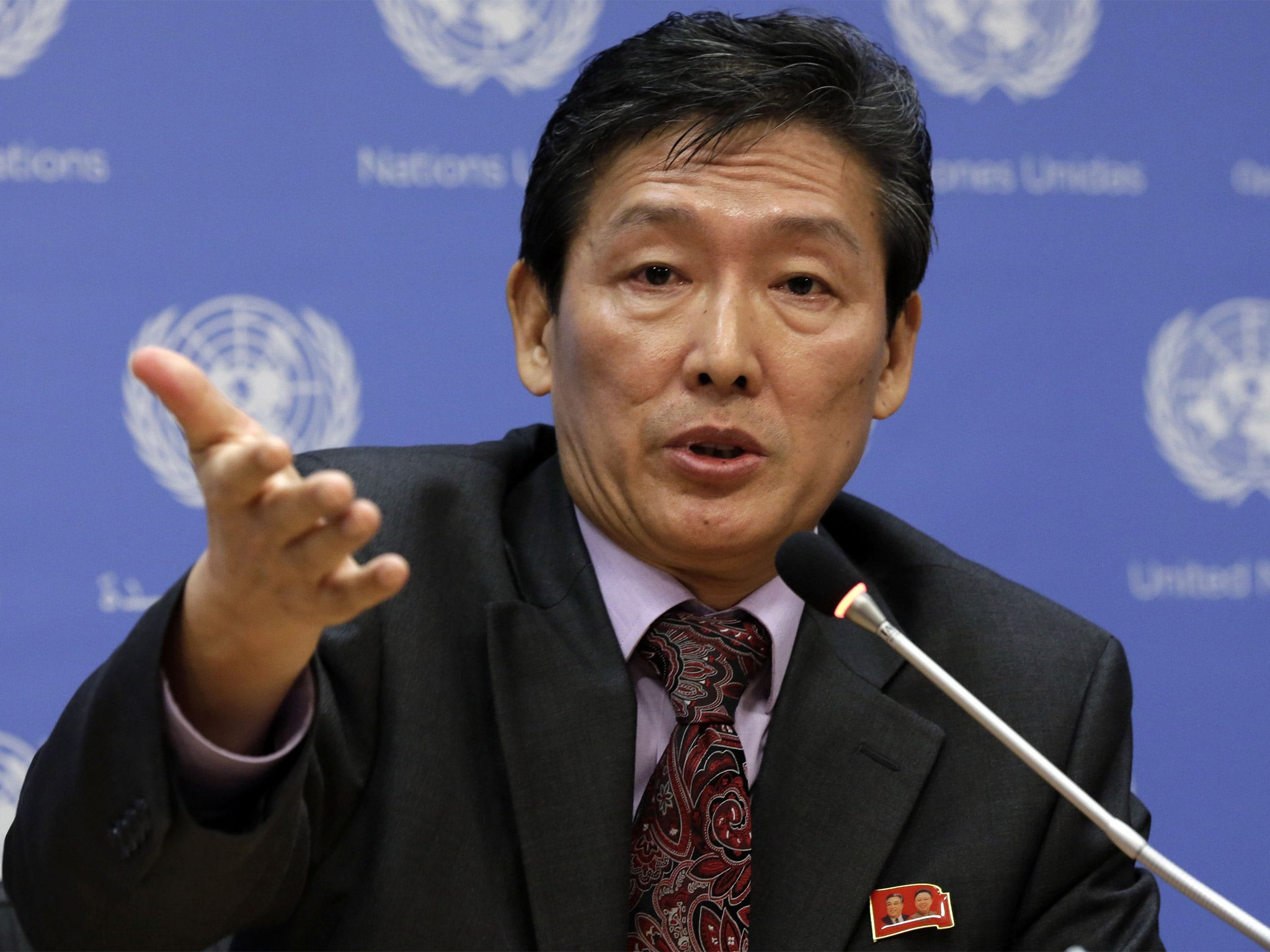Your support helps us to tell the story
From reproductive rights to climate change to Big Tech, The Independent is on the ground when the story is developing. Whether it's investigating the financials of Elon Musk's pro-Trump PAC or producing our latest documentary, 'The A Word', which shines a light on the American women fighting for reproductive rights, we know how important it is to parse out the facts from the messaging.
At such a critical moment in US history, we need reporters on the ground. Your donation allows us to keep sending journalists to speak to both sides of the story.
The Independent is trusted by Americans across the entire political spectrum. And unlike many other quality news outlets, we choose not to lock Americans out of our reporting and analysis with paywalls. We believe quality journalism should be available to everyone, paid for by those who can afford it.
Your support makes all the difference.North Korea has publicly acknowledged the existence of its labour camps for the first time in an admission that appeared to come in response to a highly critical UN human rights report earlier this year.
Diplomats for the reclusive country also told reporters that a top North Korean official had visited the headquarters of the EU and expressed interest in dialogue, with discussions on human rights expected next year.
North Korea’s deputy UN ambassador Ri Tong-il said the secretary of the ruling Workers’ Party had visited the EU and Pyongyang was expecting “to open political dialogue between the two sides”.
In Brussels, an EU spokesperson confirmed the EU’s top human rights official, Stavros Lambrinidis, had recently held a meeting.
Choe Myong-nam, a North Korean foreign ministry official in charge of UN affairs and human rights, said at a briefing with reporters that his country had no prison camps and, in practice, “no prison, things like that”.
However, he briefly discussed the “reform through labour” camps. “Both in law and practice, we do have reform through labour detention camps – no, detention centres – where people are improved through their mentality and look on their wrongdoings,” he said.
Such “re-education” camps are for common offenders and some political prisoners, but most political prisoners are held in harsher camps.
The North Korean officials took several questions but did not respond to one about the health of the leader, Kim Jong-un, who has made no public appearances since early last month. They said North Korea was not opposed to a human rights dialogue, provided it was not used as a “tool for interference”.
The briefing seemed timed in advance of the latest resolution on North Korea and human rights that the EU and Japan put to the UN General Assembly every year. In April, UN commission head Michael Kirby told the Security Council: “We dare say that the case of human rights in the DPRK exceeds all others in duration, intensity and horror.”
AP

Join our commenting forum
Join thought-provoking conversations, follow other Independent readers and see their replies
Comments